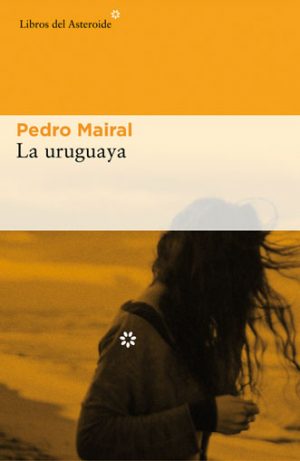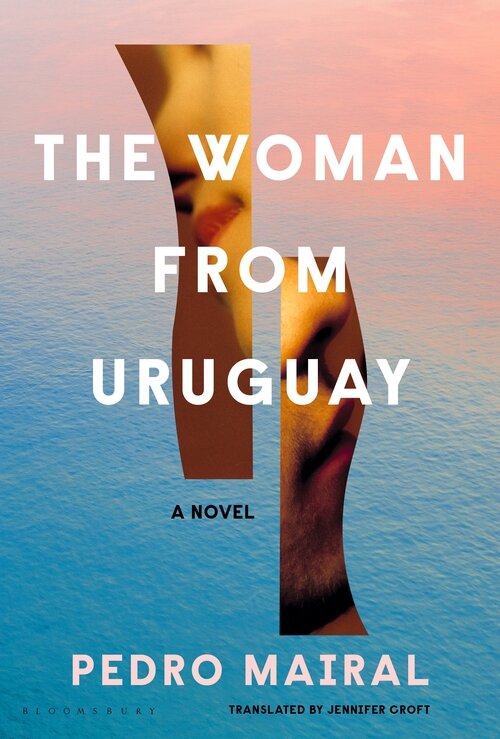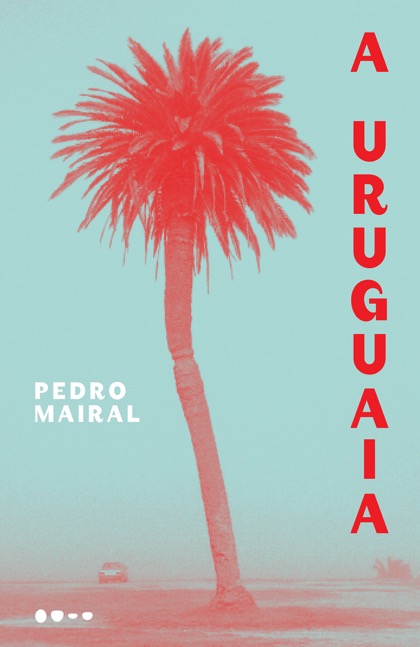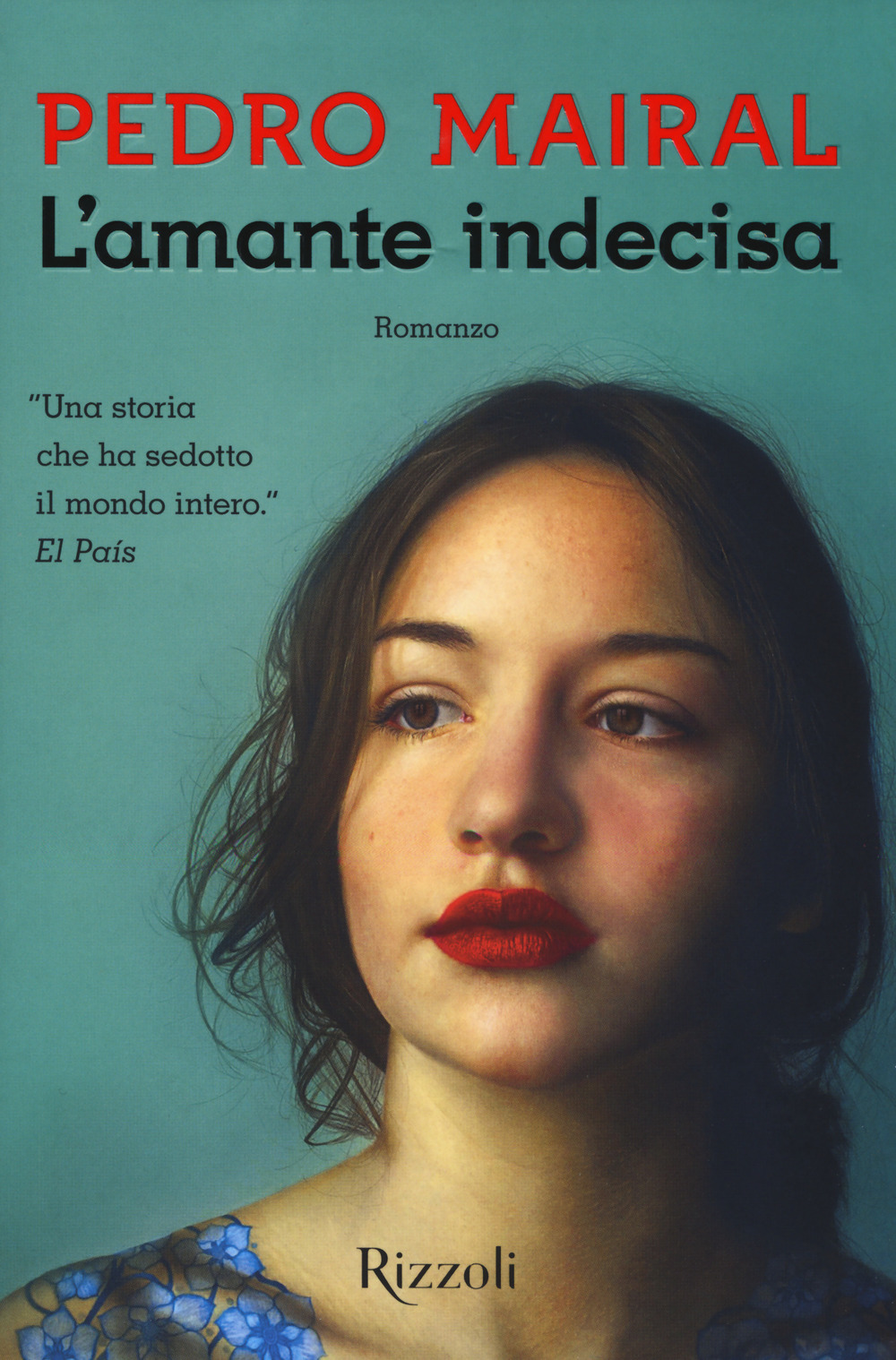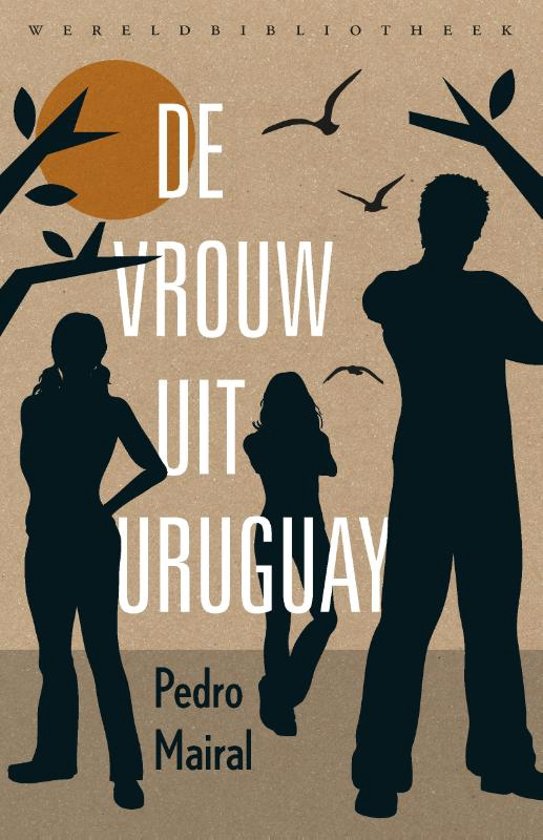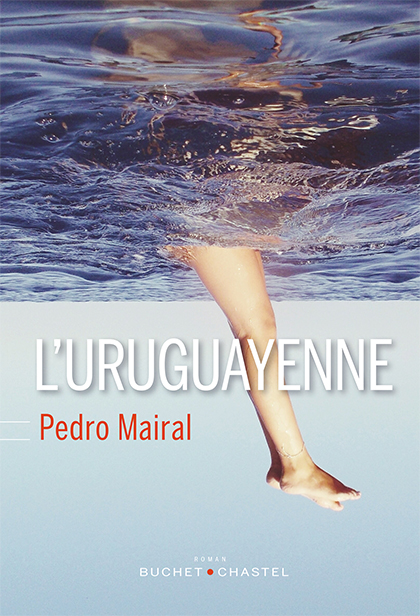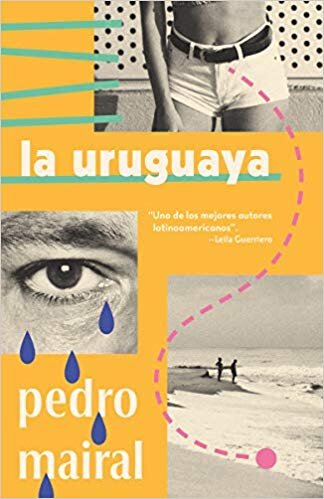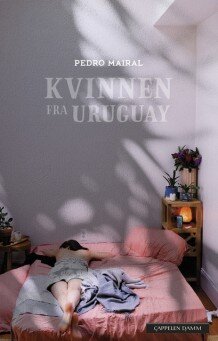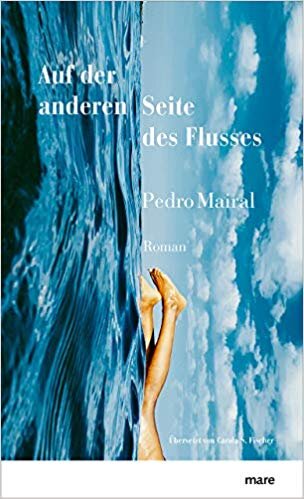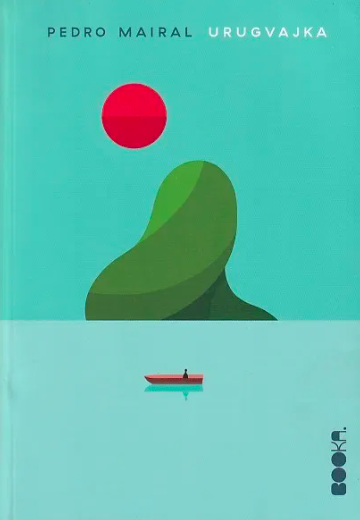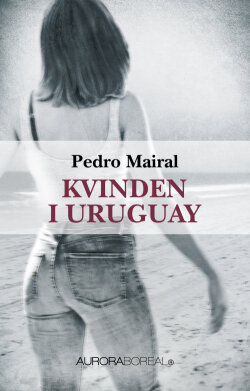La uruguaya
Pedro Mairal
FICTION | 2016 | 168 pages
WINNER OF THE 2017 TIGRE JUAN AWARD FOR FICTION
Lucas, a man in his forties, embarks on a day trip from Buenos Aires to Montevideo to pick up fifteen thousand dollars in cash. An advance due to him on his upcoming novel, the small fortune promises to be the solution to all his problems: after months of being unemployed and unable to write a single page, the tension at home has become unbearable. While his wife spends her days at work and her nights out on the town—with a lover, perhaps, he doesn't know for sure—Lucas is stuck at home all day staring at the blank page, caring for his son Maiko and fantasizing about the one thing that keeps him going: the Uruguayan girl he met at a conference several months back and who he has plans to see on his day trip to Montevideo.
RIGHTS: spanish (latin america) PLANETA | spanish (spain) LIBROS DEL ASTEROIDE | spanish (usa) VINTAGE ESPAÑOL | english (world) BLOOMSBURY | french BUCHET CHASTEL | italian RIZZOLI | german MAREVERLAG | dutch WERELDBIBLIOTHEEK I portuguese (brazil) TODAVIA | portuguese (portugal) KALANDRAKA I norwegian CAPPELEN DAMM I thai LEGEND BOOKS | arabic SEFSAFA | serbian BOOKA | film (spanish) ORSAI - ANIMAL DE LUZ | danish AURORA BOREAL | polish PAUZA | spanish audio STORYTEL
“Beautifully written and translated, The Woman from Uruguay is a work of exquisite style, shrewd philosophical insight, and deftly controlled suspense. A searing tale of seduction and betrayal, both wryly comic and deeply serious.”
“La uruguaya is a perfect novel. A triumph from beginning to end. The novel’s style, that carries the soft irony of a writer in command of his narrative voice, its extension, its verbal prowess, its impeccably paced rhythm and, of course, the theme: a marital crisis written from the perspective of an Argentine man in his mid forties who is facing an existential crisis.”
“Pedro Mairal’s La uruguaya is on its way to becoming the first popular success in Spain amidst a generation of award-winning Latin American authors who have been widely translated and acclaimed by critics and academics but that have not yet transcended small literary circles. ”
“A novel that hilariously dissects the ins and outs of the midlife crisis. Pedro Mairal is keenly aware of the many strategies we employ in an attempt to escape from ourselves, achieving none other than the collapse of the world around us. La uruguaya is that kind of book that, once you’ve started to read, is impossible to put down.”
“With a dynamic pulse, the novel delves into the different ways in which desire articulates love, money and literature.”
“[Pedro Mairal] displays his full talent in a wisely structured novel, outstanding in its narrative rhythm and in the twists and turns of the plot, where humor emerges at the same time a tragedy takes shape surrounding an enigma… La uruguaya is a story about love and its imponderables. And without the slightest doubt, after ten years, it has been Pedro Mairal’s magnificent return to the novel genre.”
“A perfect novel.”
“La uruguaya tells the adventures of a man in his forties in the middle of an economic, emotional and existential crisis, in a dizzying, contemporary and amusing way. To be read in a single sitting… It is not just a brilliant depiction of the midlife crisis, but also a deep critical reflection on the traditional economic, amatory and family models that no longer work and we need to be brave enough to pull off.”
“Agile, amusing and contemporary, the novel flows amidst the lethal combination of a “midlife crisis” and the routines and pressures of being a father and a husband.”
“Conjugal happiness, professional success, financial prosperity, the average man’s fantasy is put in question in a brilliant narrative structure, very intelligent and totally spot on.”
“Fine irony, and an amusing way of taking on such a sad subject matter are what make La uruguaya a perfect work of literature.”
“A book of easy and fast reading and slow and profitable assimilation because there is much life condensed in this short novel.”
“I love [this novel]. Complex simplicity that can be read in one sitting.”
“From beginning to end La uruguaya is an overwhelming account of the crisis and the defeat of a person burdened by circumstances who occasionally seeks on one bank what he is unable to find on another.”
“... a small gem. The powerful images, the bold dialogues, the intelligent humor, the almost structural irony, the melancholy vision of the world, the absolute mastery of a narrative voice that alternates the two stories, Catalina’s and Guerra’s make La uruguaya a text that can hardly be forgotten.”
“... phrases of unusual brilliance, of dazzling wit; but above all, lucid reflections abound with the existential draft that bring bitterness, melancholy or intimate tears, will leave no one indifferent.”
“Pedro Mairal’s narrative mastery is captivating... the Argentine author is able to invent a story in which he mixes the past, Pereyra’s memories, with a present that is not entirely revealed.”
“La uruguaya is a superb novel…. A novel that touches us, makes us think, puts us in other’s skin and does it brilliantly. Pure literature that shakes us; pure life.”
“I wasn’t able to put the book down until I finished it.”
“As is required in a novella, we are in the presence of a prose devoid of any special effects yet filled with an intense and frenetic pace… The string of encounters and missed connections, as well as the fleeting ins and outs of a cast of curious characters powerfully seduces the delighted reader.”
“Mairal builds a solid architecture and from there he unravels a whole battery of resources with an agile and addictive style, seasoned with humor and gifted of an apparent lightness.”
“A mature author in a state of grace, who manages to capture readers’ undivided attention throughout this 140-page novel all while sharing with them the fears, instincts and hopes of Pereyra, leading them to either encourage him or relish his downfall, while they identify with him or put him under moral judgment. In any of these circumstances, what is in front of the reader is a mirror, a kaleidoscopic mirror of our times… and also a reflection on the way in which our deficiencies round us out all while condemning us… La uruguaya consecrates Mairal as one of the essential names of the contemporary Latin American novel.”
“The loss and recovery of desire, the ambition of everlasting adventures, the earthquake of becoming a father, the flight forward… all these things occur in a single day (…), interwoven in the brilliant prose of Pedro Mairal, one of the best Latin American writers of our time.”
“The Woman from Uruguay is at once a picaresque comedy and a penetrating study of a man on the verge of middle age who is trying to deal with fatherhood, money, marriage and love. Lucas’s vivid presence in this book is created by his rich way of observing the world. As he travels from Buenos Aires to Montevideo, over seventeen hours, a whole world comes into being, a complex sensibility gets dramatized.”
“...a tender meditation on desire and the fragility of the human heart.”
“Endless reflections on and recollections of sex, none of it elevated.”
“A slim and eminently readable iteration of the genre (...) Mairal gives his character the gift of frankness, and in his uncomfortable admissions and meandering reflections, Lucas, too, comes to accept the limits of his agency and the ineluctable force of reality. Midlife once again proves to be about compromise, and the freedom that comes with resignation.”
“Into this brief novel, Mairal fits the humor and pain of being human, especially male, fully on display. In vivid prose that turns grotesque moments sublime, as in the description of Lucas’ flight of fancy while he pees in a filthy public restroom, this is a luminous and witty work of literary fiction.”
“This is a short novel of subtle gear changes, where the seemingly obvious plot becomes a distraction to the true narrative that builds and builds and accelerates through a shifting geographical and psychological landscape ... The expected comes to pass, but the outplaying of what the reader saw coming is constantly unexpected.”
“This introspective outing from Mairal follows a writer’s eventful day as he travels from Argentina to Uruguay to game the exchange rate and collect advances on two books ... While Lucas’s objectifying of Magalí wears thin, the story ends beautifully and judiciously, as Lucas must decide what he wants and who he wants to be. It adds up to an intimate and mostly fresh look at middle age.”
“In this swift-moving novel, a struggling Argentine writer heads to Uruguay to collect a large sum of cash and smuggle it back across the border. Mairal veers from hope to despair in a provocative, often darkly funny narration.”
BY PEDRO MAIRAL:
Esta historia ya no está disponible
ESSAYS, 2022
El gran surubí
NOVEL, 2012/2021
Breves amores eternos
SHORT STORIES, 2019
La uruguaya
NOVEL, 2016
Maniobras de evasión
ESSAYS, 2015
El subrayador
ESSAYS, 2014
El equilibrio
ESSAYS, 2013
Salvatierra
NOVEL, 2008
El año del desierto
NOVEL, 2005
Consumido final
POETRY, 2003
Hoy temprano
SHORT STORIES, 2001
Una noche con Sabrina Love
NOVEL, 1998
Tigre como los pájaros
POETRY, 1996

